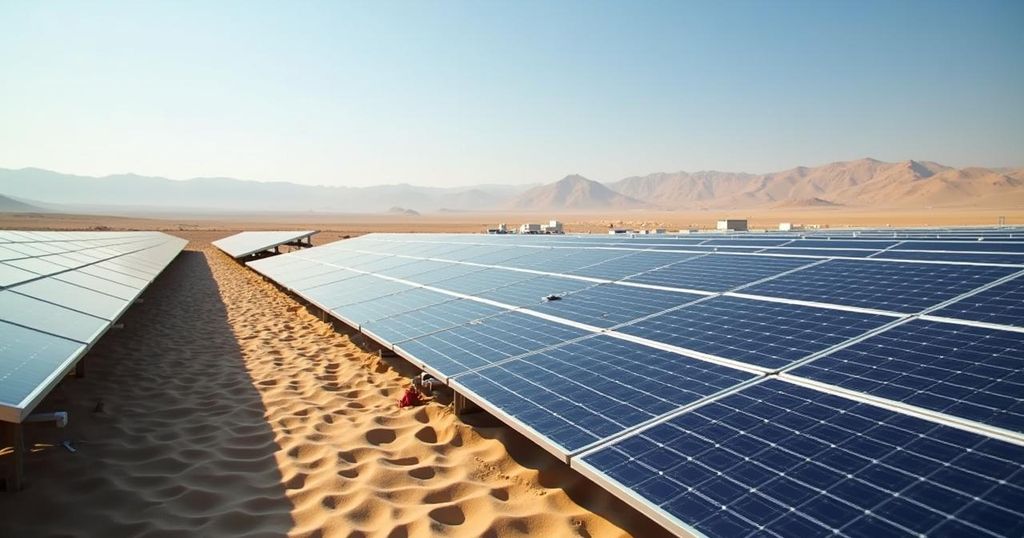Egypt and Djibouti have signed a bilateral agreement to build a solar power plant in Djibouti with a capacity of 276.5 kilowatts. This initiative underscores the growing emphasis on renewable energy in both nations and reflects Egypt’s commitment to supporting Djibouti’s sustainable development plans. The agreement was signed via video conference by the respective ministers of electricity and energy from both countries, highlighting the historical ties and collaborative efforts to bolster economic growth and development in the region.
On a significant occasion, Egypt and Djibouti formalized a bilateral agreement on Tuesday to construct a solar power plant with a capacity of 276.5 kilowatts in Djibouti. The agreement, executed via video conference, represents a pivotal advancement in the collaborative efforts between the two nations. Egypt will oversee the funding and implementation of this renewable energy project, which aims to install a photovoltaic power facility in Djibouti. This endeavor reflects the increasing focus on sustainable energy solutions within both nations and highlights Egypt’s established proficiency in renewable energy initiatives. The signing ceremony featured Egypt’s Minister of Electricity and Renewable Energy, Mr. Mahmoud Essmat, and Djibouti’s Minister of Energy and Natural Resources, Mr. Yonis Ali Guedi. Minister Essmat emphasized the enduring relationships between Egypt and Djibouti, noting the historical and cultural ties that bind the two nations. He indicated Egypt’s eagerness to enhance bilateral cooperation through the sharing of expertise in renewable energy technologies and the provision of tailored training programs to meet Djibouti’s specific developmental needs. Furthermore, he reaffirmed Egypt’s dedication to aiding Djibouti in meeting its sustainable development objectives. In welcoming the agreement, Minister Guedi extolled the advantages of the solar project as a solidification of the growing relationship between Egypt and Djibouti. He asserted that the solar power plant is expected to positively influence various sectors, including education, healthcare, and economic activity within the region. He expressed heartfelt appreciation for the support rendered by the Egyptian government, particularly the Ministry of Electricity and Renewable Energy, in this vital undertaking. This agreement follows a successful training initiative for personnel from Djibouti’s energy ministry, which was financed by the government of Egypt. The initiative underscores Egypt’s commitment to fostering sustainable development across the African continent and enhancing economic collaborations among African nations.
The construction of the solar power plant in Djibouti is part of a broader initiative aimed at promoting renewable energy solutions in Africa. Egypt has been actively involved in developing renewable energy projects and has established itself as a leader in this sector. The collaboration with Djibouti not only signifies Egypt’s intentions to solidify bilateral relations but also highlights the importance of sustainable energy in supporting economic growth and infrastructural development in African countries. The training program initiated for Djibouti’s energy ministry personnel also represents a critical step in knowledge transfer and capacity building necessary for the successful implementation of renewable energy projects.
In conclusion, the signing of the agreement between Egypt and Djibouti to develop a solar power plant marks a significant milestone in their partnership, emphasizing the importance of renewable energy in achieving sustainable development. With Egypt’s expertise and commitment to support, the project is anticipated to yield substantial benefits for Djibouti’s economy and infrastructure while strengthening diplomatic ties between the two nations. The successful training program that preceded this agreement serves as a testament to the collaborative spirit shared by both countries in pursuing ambitious development goals.
Original Source: www.dailynewsegypt.com






